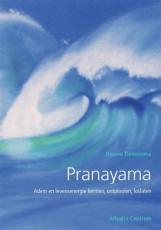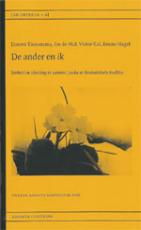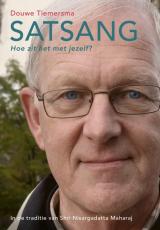Advaita Post - Volume 14 No. 20
November 12, 2013
Text Satsang
An Advaita talk with Douwe Tiemersma Gouda, January 10, 2007
When thinking stops, time stops, too.
You're always busy with caring for the things you consider to be important. This 'I'-structure directly has the element of time in it. All kinds of things from the past determine how you view things now and you look towards the future to arrange things for yourself and to bring things in order. But there's always that structure of the self and time, until at a certain point, time stops. It's good to be aware that that's also an element in your own sphere. There is time, but also, in some way time has stopped. When it's quiet and thinking stops, is there still time then? Actually, you can't even say 'no', because what is that time really? Actually, it's not even a factor. When this normal structure is broken through there is just that inexpressible. There is an open realm about which you can't speak. As being-awareness you certainly have a sense of that inexpressible. Thus this self-being goes further than time. That's a conclusion; you can confirm it directly. Isn't that right? Say it to yourself one more time: this self-being goes far beyond time. Time can stop. A sphere of ineffability arises, but it still has a quality of self-being, of consciousness. So that self-being clearly doesn't have the structure of the ego any more: that ego which is always busy in time, busy thinking. That structure disappears and there's suddenly this opening and this realm about which you can't say anything. The supporting structure has disappeared.
For thought this is an impossibility. Thinking thinks in time and can't imagine that time stops. Then it says: what is there beyond the boundary of time? That is thought within this sphere of time, and so that's exactly where the limitation to thought is.
Do you see that now and again time appears and then disappears and that time really isn't necessary? It can appear and may appear, but the restriction of this sphere of time is clear. Somewhere time arose with a certain orientation towards life, towards the person. When this focused structure disappears then there's no time any more. This whole structure disappears, so there's no mention any more about things that need to happen. And when something does happen, the events unfold in time, but then you see how changeable this experience of time is. Sometimes a day seems endless; sometimes a few years go quickly by. You see how relative this experience of time is.
We usually view the time of the clock, the agenda and calendar as something absolute. But is that so? Of course, it too is just a projection. From this changeable experience of time you are going to pull something out and say: this is absolute time and these other experiences of time are just experiences. When this projection of an absolute time is realized to be a construction then you still come back again to an experience of time, and so these two can switch. Sometimes time goes incredibly fast, sometimes incredibly slow, and if you stay alert it seems that time frequently is just not there - even in everyday life. Mostly you don't think about it. And when that's the case, it's not always good. When you remain internally alert, even while doing various daily chores, then you can see: mostly there is no time. Afterwards you might say: oh, it's already twelve o'clock. Then you're back again connecting to this clock projection of absolute time and you say: I've been busy for two hours. But that's just a thought afterwards. You see how much that thinking is completely interwoven with time. When thinking stops, time stops, too. Partially there is still an instinctive-emotional current and in that feeling current you already experience a piece of freedom from time. At a certain point you realize that there is something in you that isn't subject to time and not to that current either. As long as there are phenomena they arise and disappear once again. Time is related to phenomena. Phenomena are relative, time is relative. So the point is that you stay internally aware of that being which is free of time. That it's an open realm which is inexpressible. When that becomes recognized, then from there you can easily discover that there's also a dissolution of all the identifications for things that happen in time.
****
Er is geen tweeheid
als je ontspannen bent
in zelf-bewustzijn
is dat duidelijk.
Boeken
Douwe schreef en redigeerde gedurende zijn leven boeken. Via onze uitgeverij zijn deze nog verkrijgbaar.



